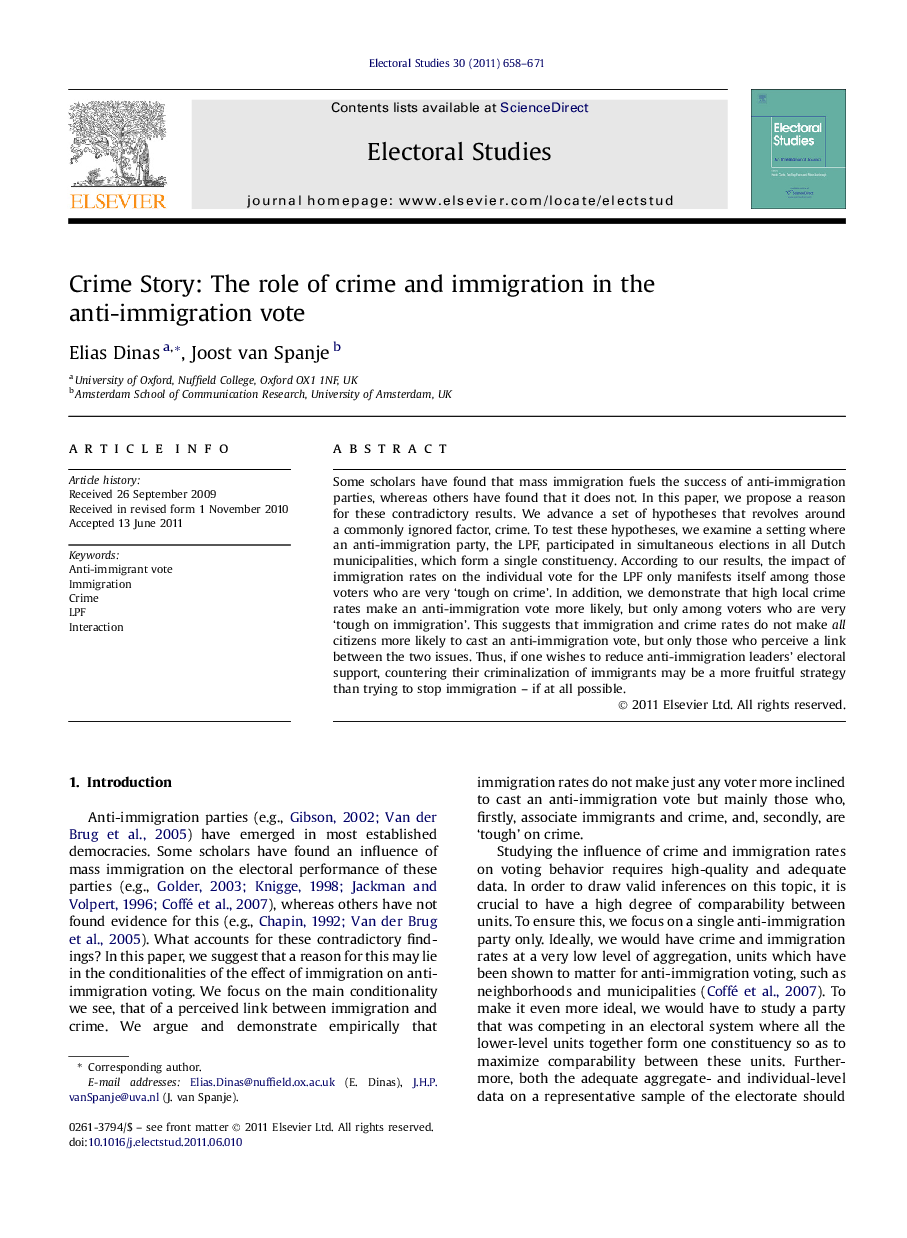| Article ID | Journal | Published Year | Pages | File Type |
|---|---|---|---|---|
| 1052263 | Electoral Studies | 2011 | 14 Pages |
Some scholars have found that mass immigration fuels the success of anti-immigration parties, whereas others have found that it does not. In this paper, we propose a reason for these contradictory results. We advance a set of hypotheses that revolves around a commonly ignored factor, crime. To test these hypotheses, we examine a setting where an anti-immigration party, the LPF, participated in simultaneous elections in all Dutch municipalities, which form a single constituency. According to our results, the impact of immigration rates on the individual vote for the LPF only manifests itself among those voters who are very ‘tough on crime’. In addition, we demonstrate that high local crime rates make an anti-immigration vote more likely, but only among voters who are very ‘tough on immigration’. This suggests that immigration and crime rates do not make all citizens more likely to cast an anti-immigration vote, but only those who perceive a link between the two issues. Thus, if one wishes to reduce anti-immigration leaders’ electoral support, countering their criminalization of immigrants may be a more fruitful strategy than trying to stop immigration – if at all possible.
► Both immigration rates and crime rates increase the probability of voting for an anti-immigration party. ► Local crime rates are more conducive to anti-immigration vote among people who advocate complete assimilation of immigrants. ► Local immigration rates are more consequential for anti-immigrant support among those who hold ‘tough’ positions on crime. ► To reduce anti-immigration electoral support it is essential to counter the criminalization of immigrants.
